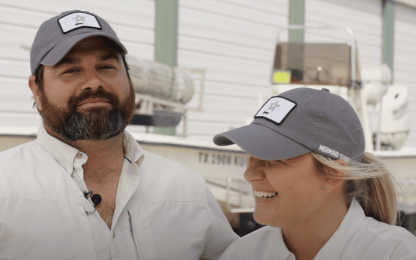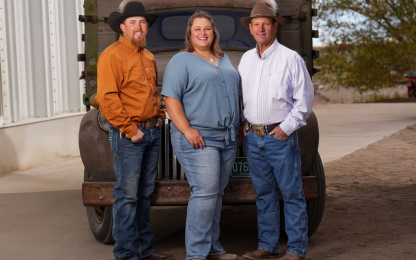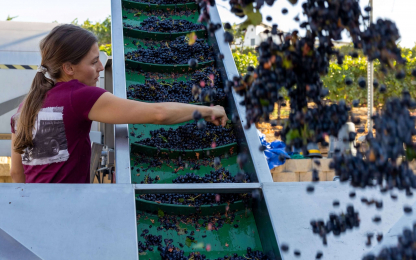Achieving Zero Food Waste
Within a 20-mile radius of Farmersville, California, approximately 2 to 4 million pounds of fruit is thrown out every day, six days a week. For perspective, that equals 40 to 80 truckloads of farm-fresh produce. The fruit is discarded simply because it has a few cosmetic damages that deem it too “ugly” for store shelves.
Ben Moore, owner of The Ugly Company, witnessed this mass food waste every day while working as a truck driver in the Central Valley. While Ben, and Army veteran, understood the challenges of agriculture thanks to the four generations of farmers before him, such food waste in his proverbial backyard shocked him.
While snacking on this ugly fruit when hauling from packing sheds, he identified an opportunity.
“I would sit there and just think, well hey, if I’m eating the fruit, but we’re over here dumping out 150 to 200 loads a year just ourselves, that’s about 6 to 8 million pounds of fruit,” Ben said. “There’s got to be something better to do with it than just dump it out.”
As so began the story of Ben’s company, The Ugly Company, in 2018. Today, Ben, who touts himself as “Big Ugly,” rescues the ugly fruit and repurposes it into dried fruit snacks.
With a mission to achieve zero food waste globally, Ben and his team have a solid start in the Kingsburg area, known as one of the most significant stonefruit production regions in California.
What started as just a grand idea has blossomed into a successful business venture that many people have supported, including national retailers like Whole Foods and Sprouts.
Growing a Workforce
In addition to The Ugly Company contributing to less food waste, its job opportunities have made an immense impact in the Central Valley. They wash, process, cut and dry the fruit at their facility in Farmersville. And now The Ugly Company serves as the most significant employer in Farmersville.
Additionally, many of the workers now employed by The Ugly Company have a more stable, year-round job, rather than working seasonally.
Farm Credit Understands
It’s no secret local farmers and businesspeople doubted Ben when he started his business. He repeatedly heard that, while great, executing such an idea would face serious hurdles. Yet, Ben knew he had all the tools necessary for success.
“I’m a truck driver; I’m a welder; I’m a good mechanic,” Ben said. “But I also have some other skills. I have an MBA from Notre Dame, so I have accounting, finance and marketing skills. Ultimately, all that stuff are tools in the toolbox.”
Another tool essential to bringing Ben’s idea to life: finding a financing partner that understood agriculture and his mission.
“To have a good foundation of a company, you have to have the right people involved, whether that be employees or business partners, but you have to have the right investment,” Ben said.
One his investors introduced Ben to Golden State Farm Credit and the partnership blossomed from there.
For Golden State Farm Credit, providing financial support to Ben was an easy decision based on his story, mission and business plan. Add to that his focus on sustainability and community wellness and you have a great match.
“The number one thing you need from a lender is someone that understands your business; that’s what Golden State brings, is a true fundamental understanding of what we do,” Ben concluded.


